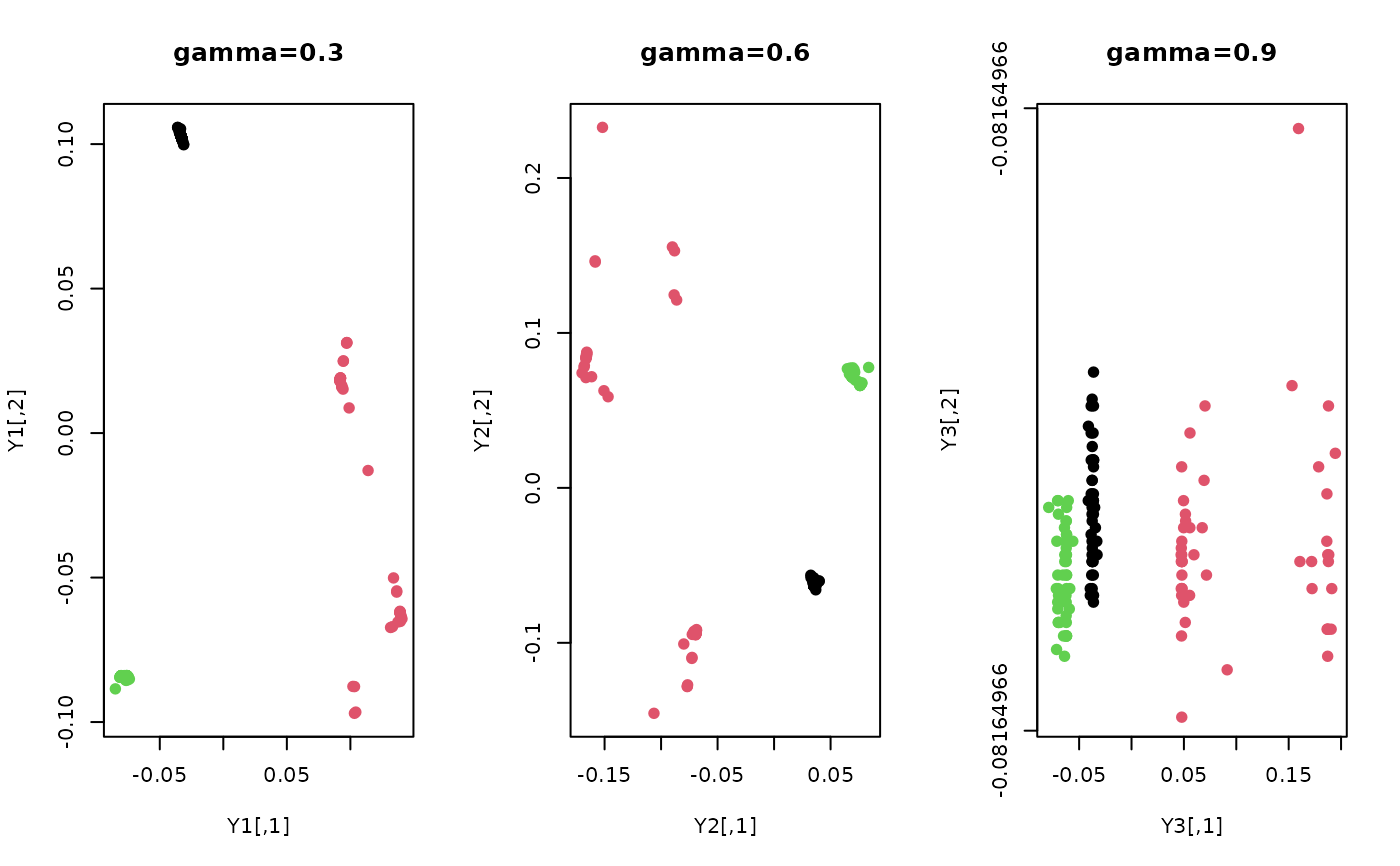Supervised Laplacian Eigenmaps (SPLAPEIG) is a supervised variant of Laplacian Eigenmaps.
Instead of setting up explicit neighborhood, it utilizes an adaptive threshold strategy
to define neighbors for both within- and between-class neighborhood. It then builds affinity
matrices for each information and solves generalized eigenvalue problem. This algorithm
may be quite sensitive in the choice of beta value.
do.splapeig(
X,
label,
ndim = 2,
preprocess = c("null", "center", "scale", "cscale", "whiten", "decorrelate"),
beta = 1,
gamma = 0.5
)Arguments
- X
an \((n\times p)\) matrix or data frame whose rows are observations and columns represent independent variables.
- label
a length-\(n\) vector of data class labels.
- ndim
an integer-valued target dimension.
- preprocess
an additional option for preprocessing the data. Default is "null". See also
aux.preprocessfor more details.- beta
bandwidth parameter for heat kernel in \([0,\infty)\).
- gamma
a balancing parameter in \([0,1]\) between within- and between-class information.
Value
a named list containing
- Y
an \((n\times ndim)\) matrix whose rows are embedded observations.
- trfinfo
a list containing information for out-of-sample prediction.
References
Raducanu B, Dornaika F (2012). “A Supervised Non-Linear Dimensionality Reduction Approach for Manifold Learning.” Pattern Recognition, 45(6), 2432--2444.
See also
Examples
# \donttest{
## load iris data
data(iris)
X = as.matrix(iris[,1:4])
label = as.factor(iris[,5])
## try different balancing parameters with beta=50
out1 = do.splapeig(X, label, beta=50, gamma=0.3); Y1=out1$Y
out2 = do.splapeig(X, label, beta=50, gamma=0.6); Y2=out2$Y
out3 = do.splapeig(X, label, beta=50, gamma=0.9); Y3=out3$Y
## visualize
opar <- par(no.readonly=TRUE)
par(mfrow=c(1,3))
plot(Y1, pch=19, col=label, main="gamma=0.3")
plot(Y2, pch=19, col=label, main="gamma=0.6")
plot(Y3, pch=19, col=label, main="gamma=0.9")
#> Warning: relative range of values ( 83 * EPS) is small (axis 2)
 par(opar)
# }
par(opar)
# }